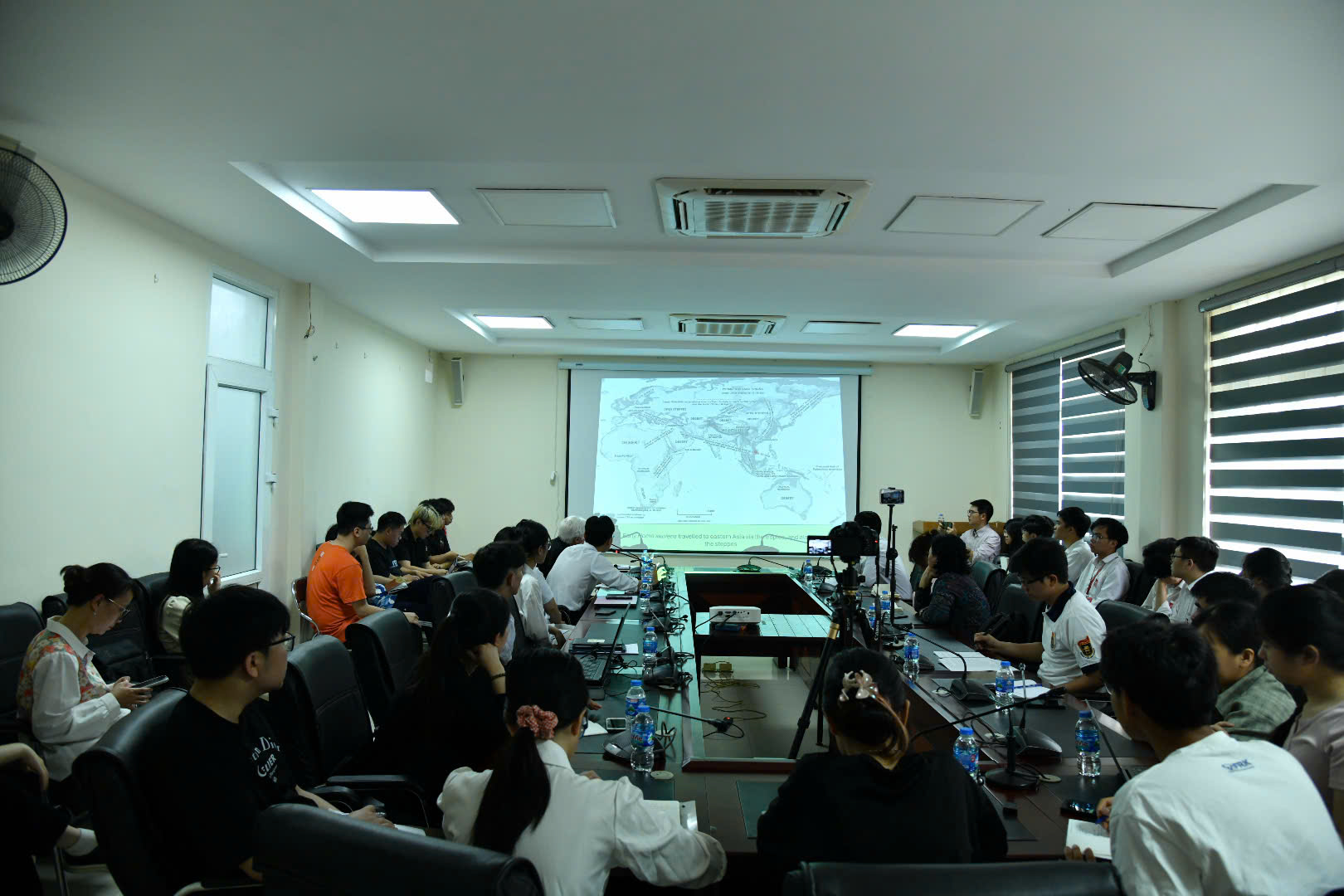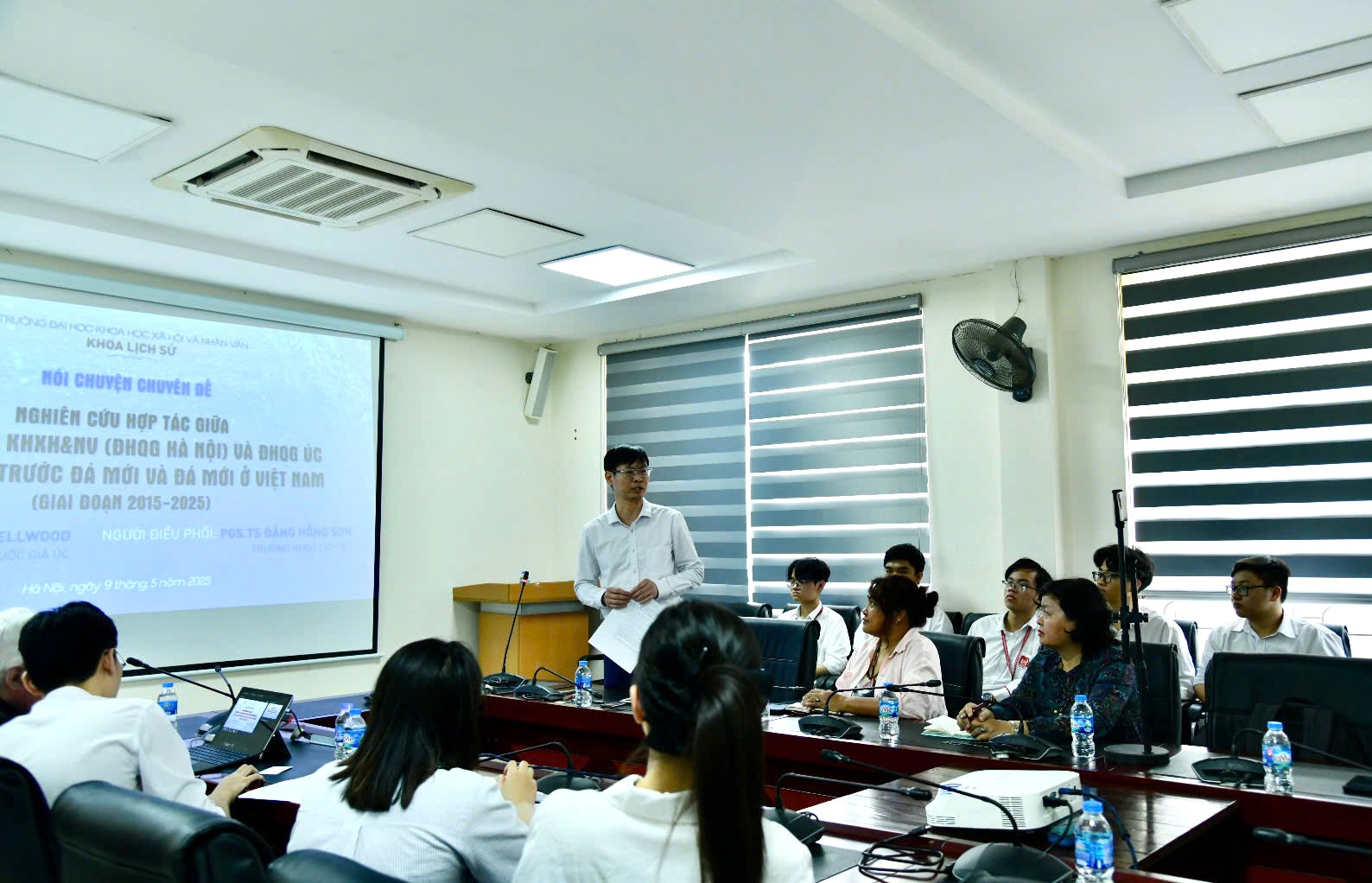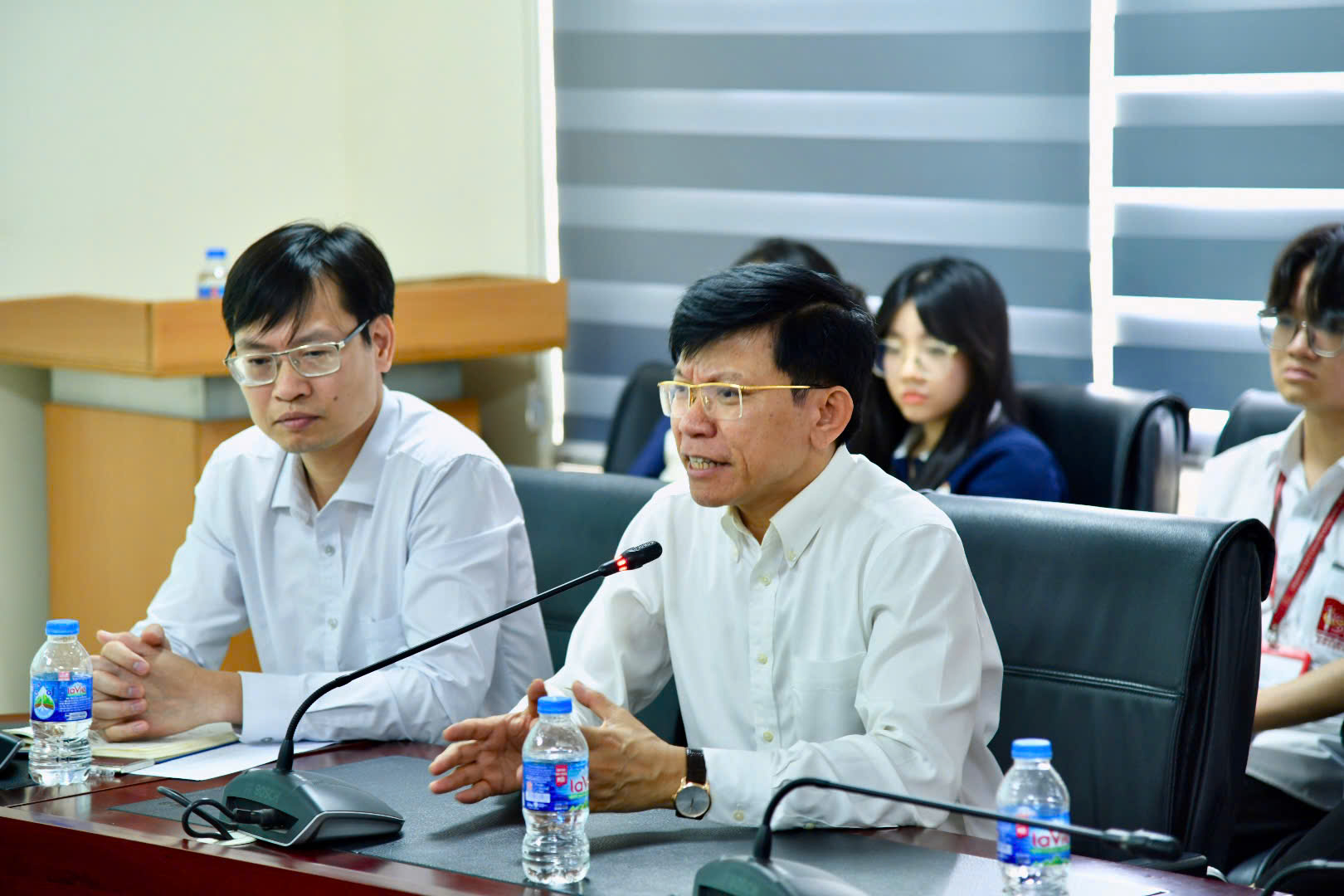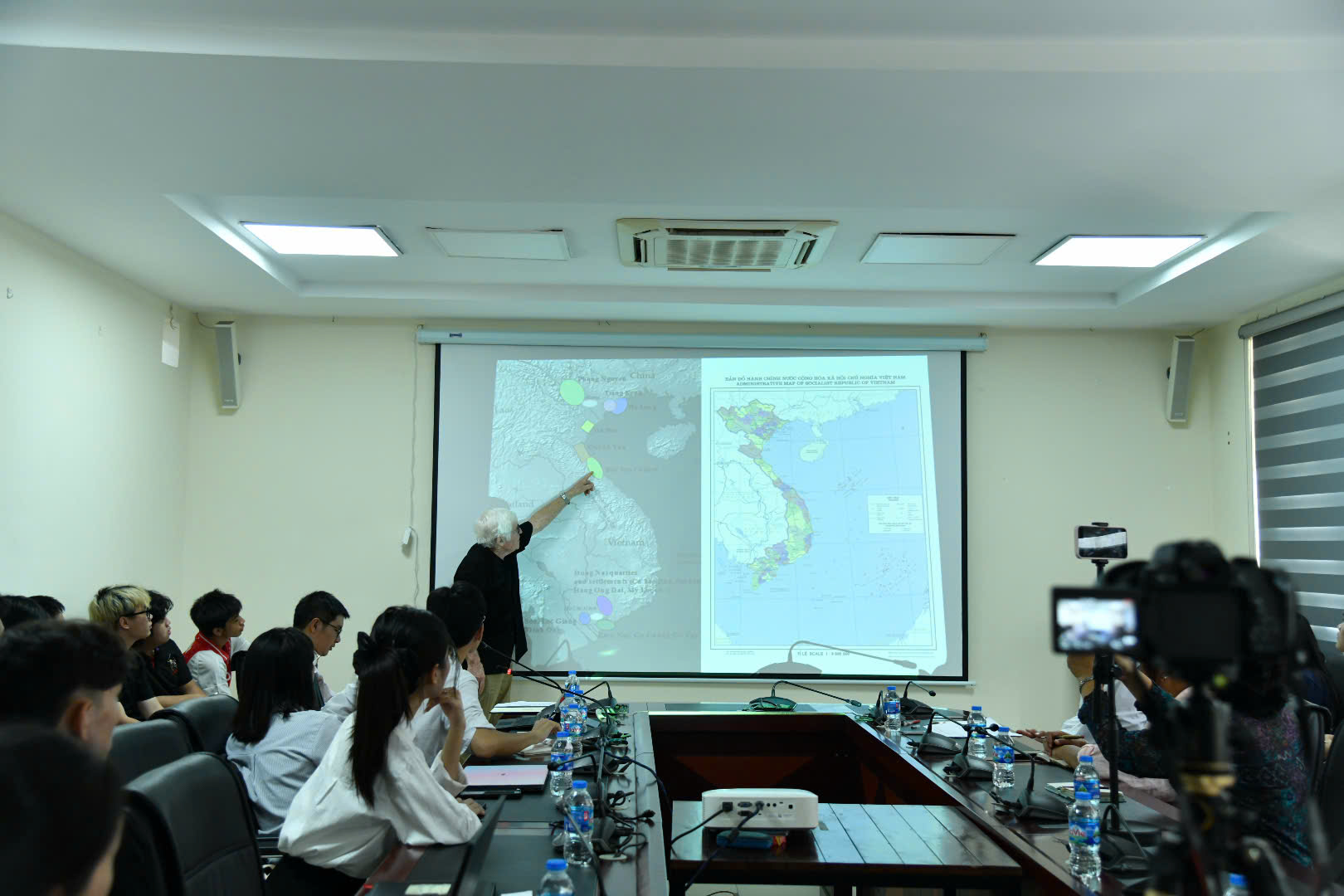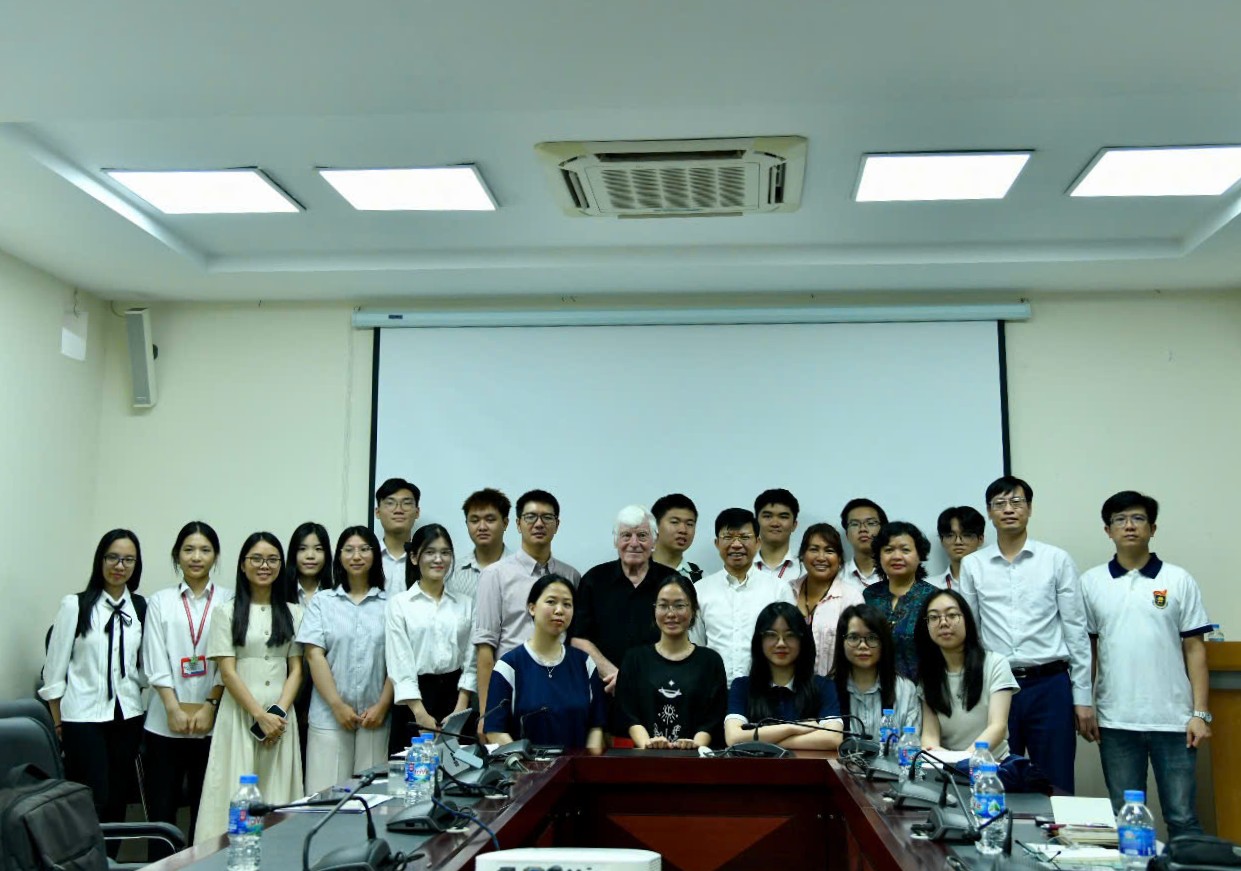The event attracted the attention of a large number of scientists, lecturers, trainees, and students from the University of Social Sciences and Humanities.
Assoc. Prof. Dr. Dang Hong Son, Head of the History Department In his opening remarks, Professor Hoang Anh Tuan (Rector of the University of Social Sciences and Humanities) emphasized the importance of international cooperation in social science and humanities research, especially with prestigious partners such as the Australian National University. The Rector expressed his belief and hope for the continued development and expansion of the excellent cooperative relationship between the two universities in the future.
Rector Hoang Anh Tuan highly appreciated the significance of the effective support and cooperation from the Australian National University and Professor Peter Stafford Bellwood personally.
Professor Peter Bellwood is an internationally renowned scientist with groundbreaking research on migration processes, agricultural development, and cultural and linguistic spread in Southeast Asia and the Pacific. He is famous for his ability to combine archaeology with anthropology, biology, linguistics, and genetics to develop profound interdisciplinary theories about the development and distribution of ancient populations. His notable works, such as *First Farmers - The Origins of Agricultural Societies*, *First Migrants*, *Prehistory of the Indo-Malaysian Archipelago*, and *The Five-Million-Year Odyssey - The Human Journey from Ape to Agriculture*, have become invaluable reference materials for researchers worldwide.
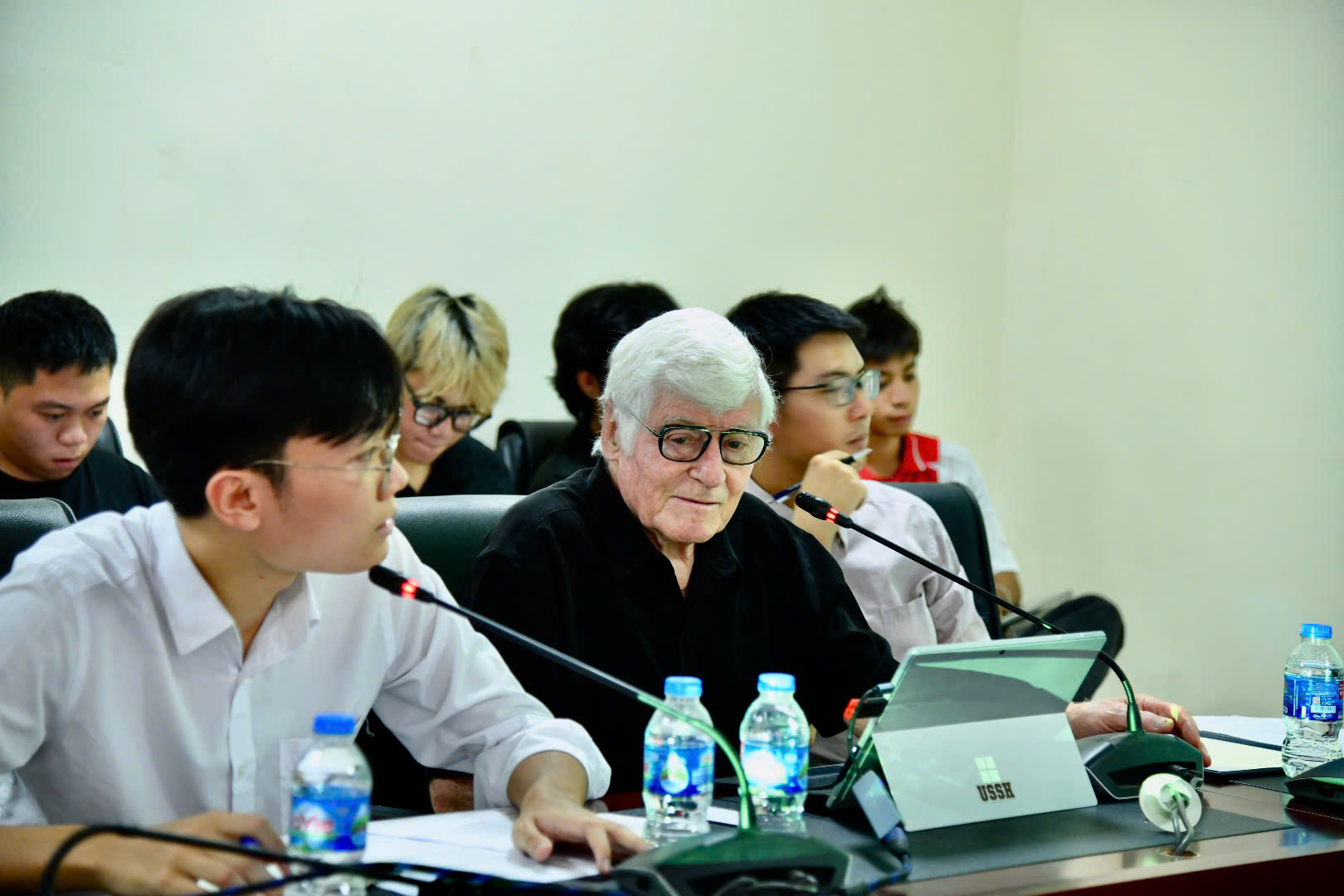
During the talk, Professor Bellwood summarized in detail the more than 10 years of effective cooperation between the Faculty of History, University of Social Sciences and Humanities (Vietnam National University, Hanoi) and the Australian National University (ANU) from 2015 to 2025. The cooperation program has implemented numerous large-scale research, survey, and excavation projects at important archaeological sites throughout Vietnam, including Thach Lac, Ru Diep, Cai Beo, Con Dat, and Quynh Van…
Professor Bellwood presented a brief overview of the research findings on archaeological sites in Vietnam.
These collaborative efforts have yielded invaluable results, contributing to the clarification of important cultural phases from the late Paleolithic to the early settled agricultural period in Vietnam. Archaeological findings have revealed a complex transition between indigenous hunter-gatherer communities (such as the Hoa Binh and Da But cultures) and new populations bringing agriculture, pottery, and possibly even ancestral languages of the Austroasiatic and Kra-Dai families.
In particular, sites such as Quynh Van, Thach Lac, and Ru Diep have provided valuable data on the absolute age of archaeological sites, types of stone tools, ancient burial mounds, and patterns of ancient settlements. Thanks to this, researchers have been able to reconstruct in more detail the process of the formation of early societies in Vietnam within the broader context of Southeast Asia.
A clear testament to the success of this collaborative program is the high-quality scientific papers published in prestigious international journals, with contributions from researchers from both universities. These are proud achievements, affirming the research capabilities and increasingly prominent academic standing of the University of Social Sciences and Humanities on the global scientific map.
The thematic lecture attracted a large number of faculty members, researchers, graduate students, and undergraduates from both within and outside the university. The event created a vibrant academic forum where scientists and interested individuals had the opportunity to exchange knowledge, share the latest findings, and discuss potential future research directions.
The delegates attending the talk took a commemorative photo with Professor Peter Stafford Bellwood.
The success of this thematic discussion not only marks an important milestone in the cooperation between the University of Social Sciences and Humanities and the Australian National University, but also opens up promising new prospects for even deeper cooperation in the field of prehistory and archaeology research in Vietnam. The University believes that, with the solid foundation already built, the cooperation between the two universities will continue to achieve even more brilliant successes in the coming years, making a significant contribution to the development of social sciences and humanities in Vietnam and the world.
